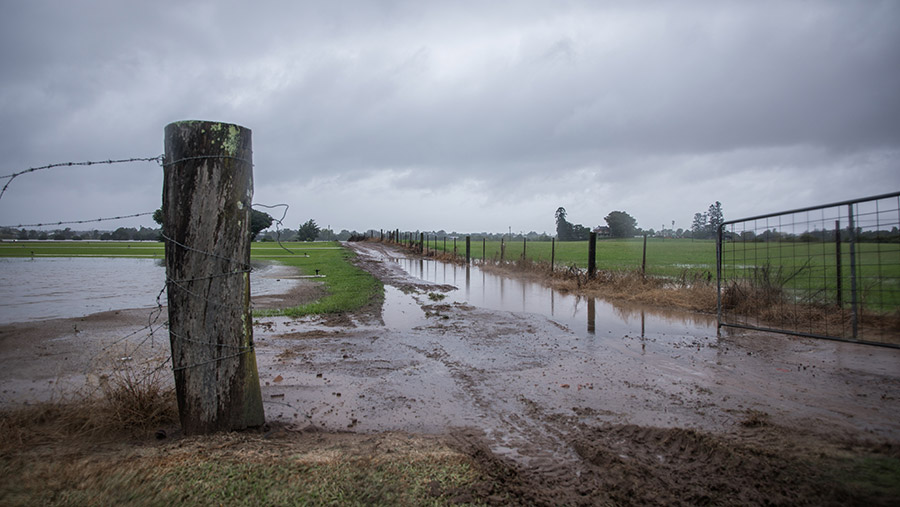Confidence among English and Welsh farmers is at an all-time low, according to the NFU’s latest Farmer Confidence Survey.
It shows that short and mid-term confidence is at its lowest since records began in 2010, which has also led to production intentions plummeting, with all farming sectors expecting to decrease production over the next year.
See also: Rattlerow Farms acquires award-winning Northamptonshire pig unit
The relentless wet weather has played a role, with 82% of respondents saying their farm businesses have suffered either negatively (52%) or very negatively (30%). Mixed, arable and dairy farms have taken the biggest hits.
Since the survey was done in November and December last year, farmers have been battling relentless rain through January, February, March and much of April, which has affected productivity, particularly on outdoor units, and maybe linked to higher disease levels.
Farm business profitability has also fallen, with 65% of respondents saying their profits are declining or their business may not even survive.
The NFU say that if the survey was undertaken again today, the results would be even worse. President Tom Bradshaw said that the figures paint a stark picture:
“Any business owner knows that without confidence and a steady cash flow, businesses will struggle to re-invest and remain viable.
“We have already lost more than 7,000 agricultural businesses since 2019 – no one wants to see that increase, least of all our customers who really value the high quality, sustainable food British farmers produce.
“With climate change wreaking havoc on food systems across the world and geo-political tensions high, Britain cannot afford to lose its ability to feed itself.”
The NFU is calling for government to recognise the unprecedented consequences of what have been the wettest 18 months since 1836, warning that many farms may be unable to survive.
In its General Election Manifesto, the NFU has outlined aims for political parties which they hope will work to reverse farmer confidence levels and safeguard food production.
Actions include planning and rewarding farmers for mitigating flood risk, an open transition to new environmental schemes and establishing minimum standards for the supply chain.
Mr Bradshaw urges all political parties to prioritise producing sustainable food and renewable energy to help drive economic growth and provide jobs.




